For more than 30 years retired Dundee nurse Alison Findlay looked after hundreds of sick babies.
But there is one little girl she has never forgotten.
In April 1989, Alana Elliot was born prematurely weighing less than half a bag of sugar.
Yet against the odds, she survived.
And 30 years later, in 2019, Alana came back to the neonatal unit to thank Alison – who was one of the midwives working there at the time – for caring for her and ultimately saving her life.
“At the time I was completing my neonatal nursing course at Ninewells,” Alison, 59, explains.
“As part of the training, you had to study a baby you had looked after.
“The baby girl I studied was born at 23 weeks and weighed less than 500 grams.
“We were really quite desperate for her and thought she wouldn’t survive.
“But miraculously, she did.”
‘She is just the most amazing young lady’
When Alana was a teenager, aged 16, her mum contacted Ninewells to see if Alison was still working there.
“When she found out I was, she brought her into visit.
“I then met her again when she was 21.
“And when it was her 30th birthday in 2019 she came back again to the unit with her own child.
“I was blown away when I saw her.”
Alison continues: “When babies leave the unit, you never know what their outcome will be long term.
“But she is just the most amazing young lady.”
What inspired Alison to become a nurse?
The retired senior charge nurse has worked at Ninewells for the past 37 years.
In fact, she enjoyed her job so much that after retiring, she came back to work part-time in the neonatal unit in a front-of-house role as ward clerkess.
Dundee born and bred, the former Harris Academy pupil started her nurse training in August 1983.
“It was either nursing or veterinary I was interested in,” Alison says.
“My mum said I always had this need of wanting to help others – even as a child.
“When I was around eight or nine years old I remember there was this beautiful little black Labrador on Blackness Road.
“It went out on to the road and my sister and I were shouting at it to come off.
“But it wouldn’t move.
“So I just stepped onto the road to rescue the dog, but I was hit by a car!
“I was taken to hospital and was treated for a hairline fracture in my arm.”
She continues: “In the end I decided to choose nursing.
“I have always had a fascination with how the body works and I loved all the sciences, biology and anatomy physiology and health in particular
“So I went to the Angus College of Nursing and did three years training to qualify as a registered general nurse in 1986.”
How neonatal nursing was Alison’s calling
But early on Alison knew exactly what area of nursing she wanted to work in.
“I firmly believe my calling was neonatal nursing,” she says.
“I remember finding out it involved caring for sick babies so I then looked at what I needed to do to work in neonatal nursing.”
The first step was a qualification in midwifery.
And although initially she wasn’t keen on that particular area of nursing, she ended up enjoying the 18 months she spent training to be a midwife.
What were Alison’s nursing roles over the years?
Alison first came to Ninewells as a student midwife in 1987.
She qualified as a midwife in August 1988 and a year later, she became a neonatal nurse.
In January 1990, she became a charge nurse.
And 15 years later Alison was promoted to senior charge nurse in 2005.
She remained in the same post until her retiral in March 2022.
The mum-of-one loved the role which saw her overseeing the care of hundreds of sick babies in the neonatal unit at Ninewells.
Changes in neonatal nursing over the years
Alison has seen a lot of changes in neonatal nursing over the years.
These include involving the parents a lot more in the care of their babies.
And the introduction of skin-to-skin contact between premature babies and their parents in the early 1990s.
“Initially, in the early years, there were strict visiting times for parents to attend the unit and the babies care times were quite regimented.
“Whereas now parents have swipe access to the unit and can attend any time day and night, remaining by their baby’s cot side and incubators for as long as they like.
“We purchased specifically designed reclining chairs for each cot side which parents can sit/lie back on and have skin-to-skin contact with their baby for as long as they wish.”
Bereavement services for babies who have passed away
One of the toughest parts of Alison’s job over the years has been losing babies which are too poorly to survive.
“I always remember one particular bereavement service I attended in Dundee University chapel.
“They are usually held twice a year to remember babies who have passed away over the years.
“They were reading out the names of the babies and when one name was mentioned I thought ‘oh gosh I remember him’.
“I got up to give a reading and when I came back and sat down, a man behind me tapped me on the shoulder and said: ‘I knew it was you’.
“I turned round and sitting there was the mum and dad of the baby who had been mentioned.
“He had passed away some 26 years previously.
“At the end of the service, that mum and dad just hugged me for what felt like an eternity.
“My partner, who was with me, was blown away by the impact I had had on them.”
Alison adds: “That dad said to me ‘Alison we knew you were special’.
“That touched me in a way that still resonates til this day.”
Working with the babies she cared for
As well as looking after lots of babies during her career – including sets of twins, triplets and quads (three boys and a girl who are in their late 20s now) – Alison has even gone on to work with some of them.
“There have maybe been more than I am aware of but I know of two in particular,” she says.
“It’s very wonderful but also very strange to have cared for a baby and then years later that baby comes back to work as a staff member!
“One of the girls left but the other one is still here and she is a wonderful nurse.”
Alison is delighted to still be working at Ninewells Hospital as it marks its 50th year and she is very proud to be an NHS nurse.
“I am a really proud NHS worker and I am proud of my colleagues.
“I love being a nurse.
“For me it isn’t just a job – it’s a passion. And I feel really lucky to have spent almost all of my career working in the neonatal unit at Ninewells.
“When you see some babies, coming in as ill as they are, and then see them when they are ready to go home, there is no feeling like it.
“It’s truly a privilege to have cared for them.”
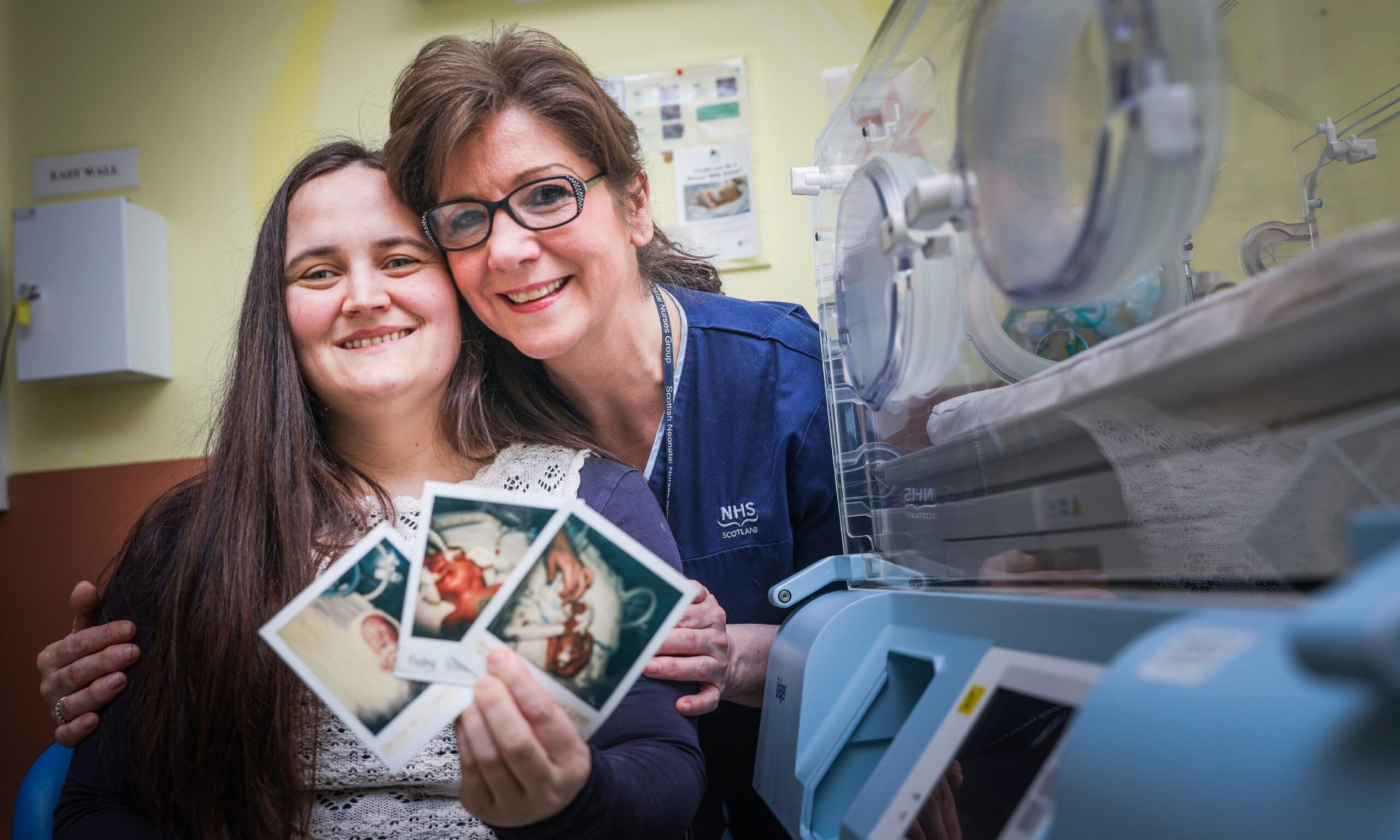
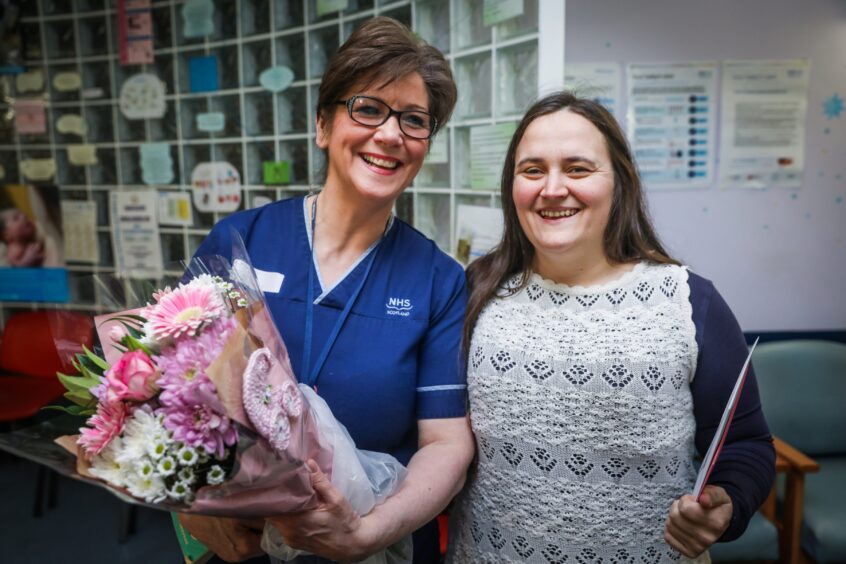

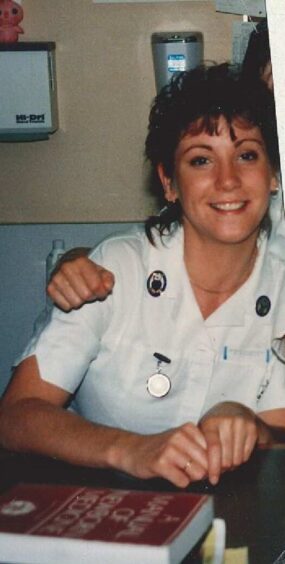
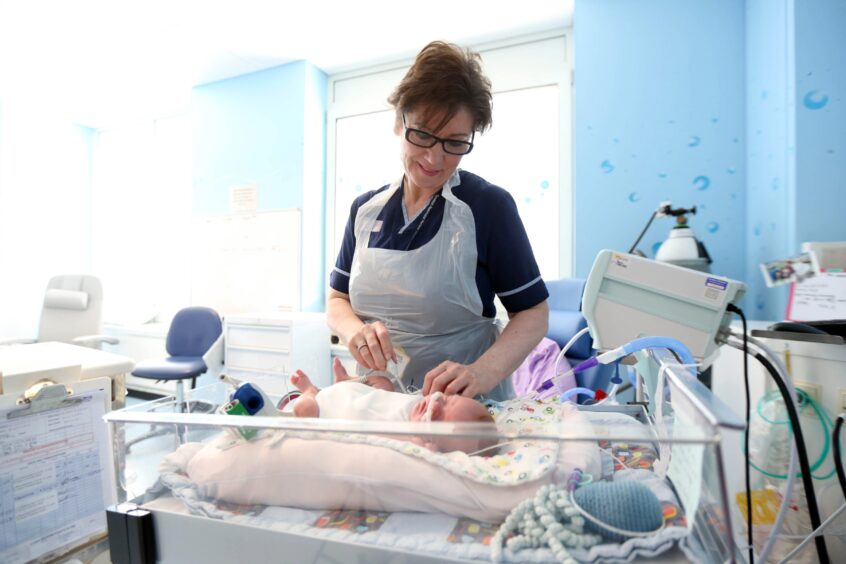
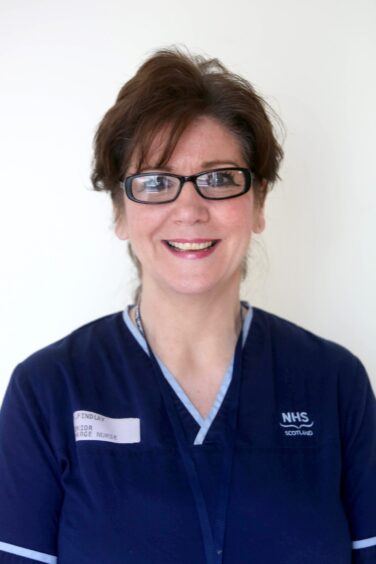

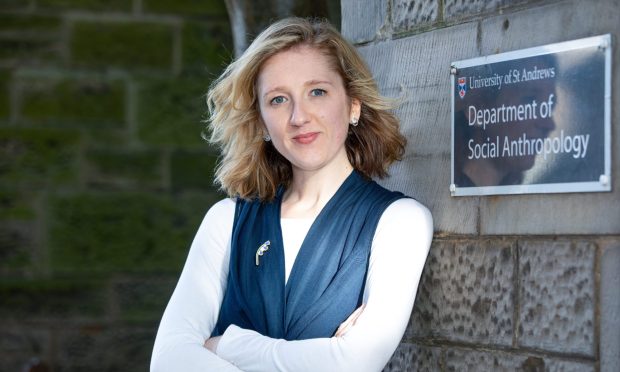
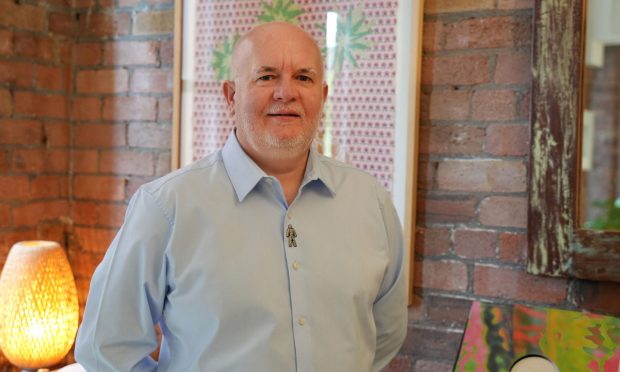
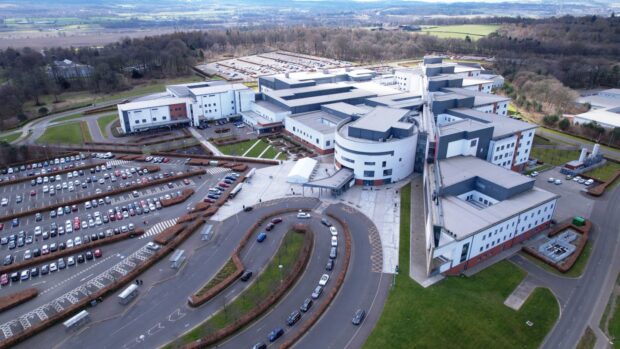
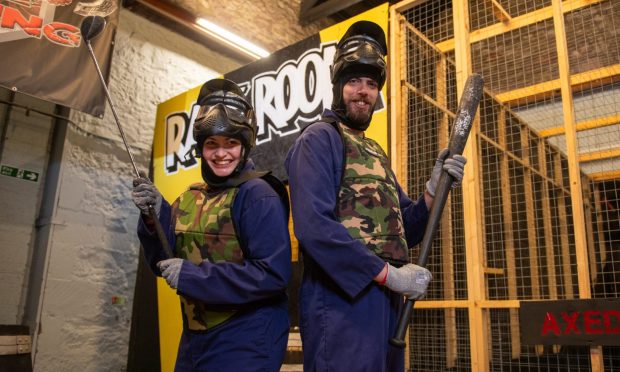
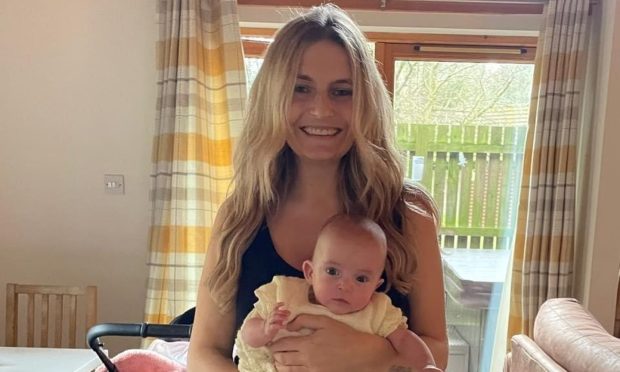
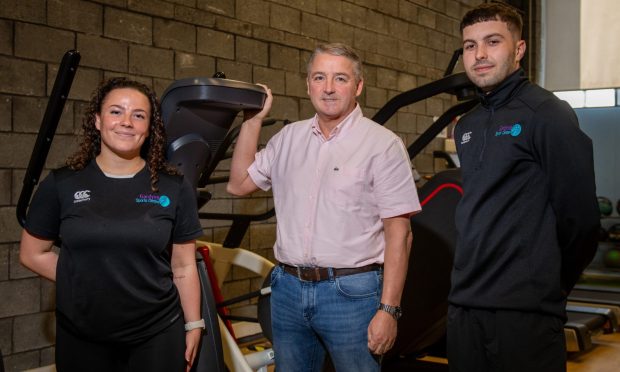
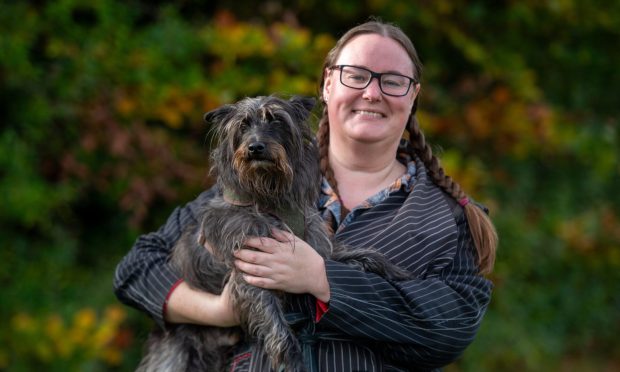
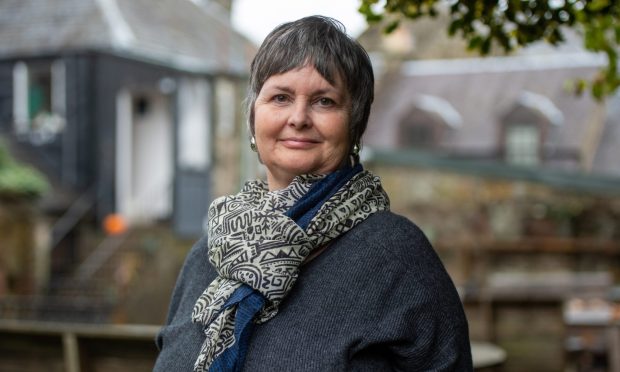
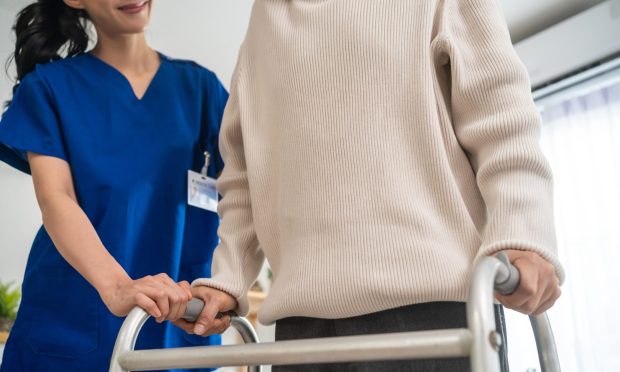
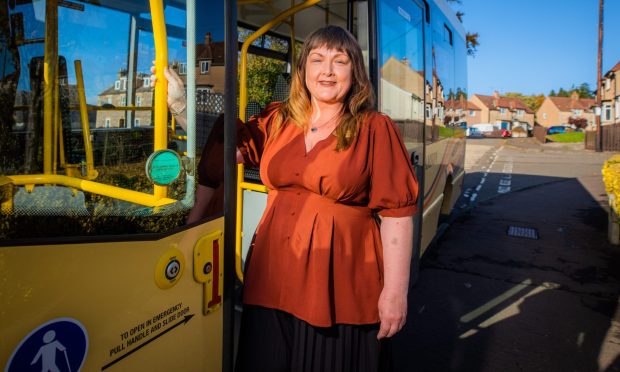
Conversation